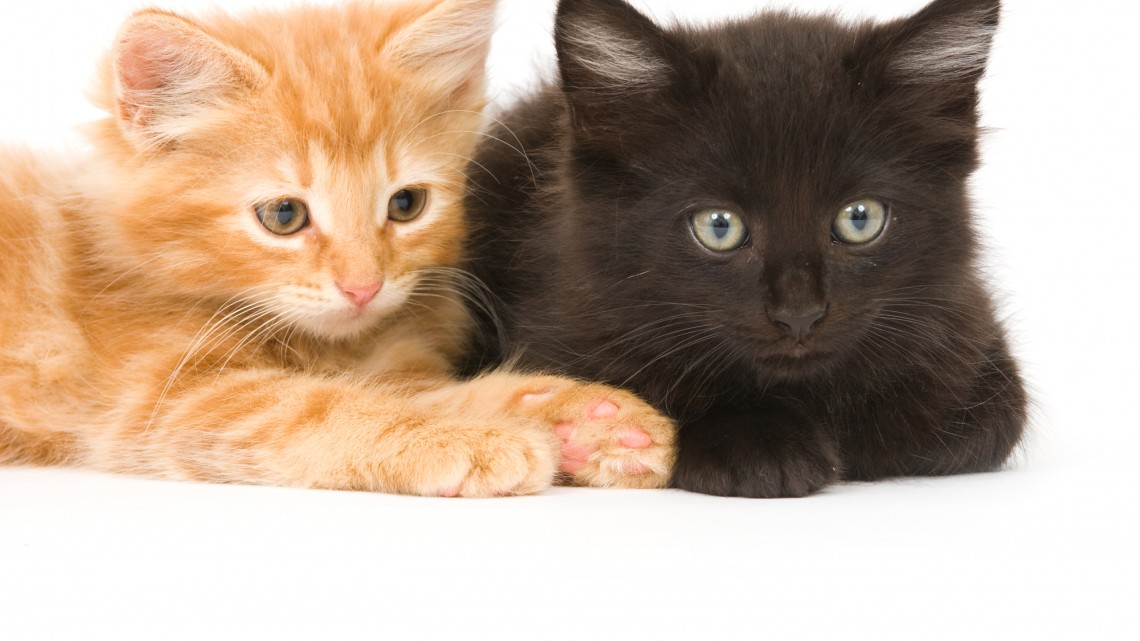Litter box problems and act of aggression are just two examples of common feline behaviors that can drive us to distraction. The reasons can be cloudy and the solutions even more remote. The secret? Find out what your cat is feeling and thinking.
Princess is a loving yet spirited long haired kitty. She had been with Freda and Harv for two years and was a perfect companion – except for one thing. She urinated outside her litter box.
Princess is the only household animal and enjoys being the center of attention. Sometimes she urinated right beside her box, and sometimes in front of the door, even though a litter box was placed right there. Freda had Princess checked for medical issues and tried many different litters in both covered and uncovered boxes, but nothing helped. As a result, the carpeting throughout the house had to be replaced. Freda asked if I could use animal communication to get to the bottom of the problem.
I found Princess to be a very smart and sensitive girl, a beautiful soul completely devoted to her people. She loved the attention she was given, but had actually become dependent on it! Freda confirmed that Princess showed “clingy” behavior. Princess communicated to me that she felt lonesome and insecure when her people left her for long periods. Urinating outside the litter box helped her surround herself with her own scent. This gave her a sense of increased security and safety. She also wasn’t fussy about her litter.
Once Princess let me know why the behavior was happening, it was easy to find a solution. I suggested that Freda switch to a special litter, and give Princess Bach Rescue Remedy every day for about a month. I felt this would soothe her enough that she would use her litter reliably. Once Princess reached this point, Freda and Harv needed to wean her a little from her dependency by leaving her for short periods at first, and gradually moving to longer periods, always providing lots of toys and even hidden treats around the house to occupy her while they were gone.
Several days later, Freda sent me an update with “wonderful news”. Princess hadn’t wet the floor since the changes were made.
Communication can point the way
Many cats exhibit behavioral issues that are difficult to understand and correct. The first step, of course, is to take the cat to the vet to make sure his behavior isn’t caused by illness. If he’s healthy, and behavior modification doesn’t have an effect, animal communication might be able to help. Telepathic communication is an interchange of thoughts, pictures, feelings and other information. Checking in telepathically with your cat can uncover his emotional state and concerns, and can reveal the reasons for unwanted behaviors.
Animal communication has led yielded solutions to excessive grooming and self-mutilation, furniture clawing and stress. Sometimes, communication itself doesn’t resolve the problem, but acts as a guidepost to other solutions like flower essences, changing litters, increased playtime, energy balancing or resources requested by the cat, such as taller scratching posts, cat grass and the like. Many skeptical clients who tried communication as a last resort have been astounded by the changes in their feline friends.
Luna becomes Luma
Take Luna for instance. She’s a playful five-year-old spayed rescue cat. She was quite feral but has calmed enormously in the year since Janet adopted her. The problem was that Luna was attacking Janet’s other cat, Elvira. Janet ended up having to separate them. She described Luna as “sassy and impudent” to the older Elvira.
When I connected with Luna, she shared that she had claimed the entire apartment as her territory and felt quite powerful. She viewed Elvira as her subordinate and rather as a commodity – attacking her was amusing! When I reminded Luna that she should respect Elvira as the original resident, Luna replied that she had taken over – she was the stronger individual and the territory was now hers. Telling her of Janet’s desires didn’t advance matters. Luna was a determined girl.
I recommended Bach Flower Remedies to help balance Luna’s outlook and mental state. I suggested Vine for her bullying and dominance, Chicory for possessiveness and territorial behavior, and Vervain for her high energy level. I also suggested that Janet consider changing the cat’s name. “Luna” means “moon”, the planet ruling emotions, and connotes fluctuation and instability. Janet was quite open to this and immediately came up with Luma, which sounds similar but carries an entirely different energy, one of brightness and enlightenment.
Ten weeks later I received an update from Janet. “Luma is a changed cat, so affectionate and loving, and not attacking Elvira like she used to.” She sits on Janet’s lap now, and is no longer nervous. Janet told me that changing Luma’s name was a huge step in softening her energy.
Telepathy is one way animals communicate among themselves. And it’s our heritage and birthright too. Give it a try. Practice on your own (see sidebar) or attend a workshop or teleclass. You might surprise yourself, delight your feline friends, and even find solutions for those “impossible” behaviors!







No Comment